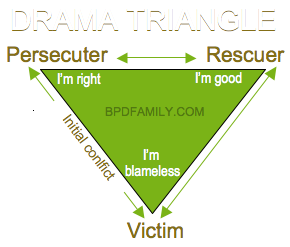Navigating the elder management landscape can be overwhelming and complicated – especially when siblings and stepsiblings do not get along. While elderly family members may have an estate plan in place, the execution of the plan can be challenging, especially when it comes to care. Eventually, elderly family members may need assistance with such things as managing their finances, managing their care, or managing a change in living accommodation to acquire more care.
While brothers and sisters can be an invaluable source of support, they can also be a significant source of stress and anxiety if disagreements crop up about important issues like living arrangements or finances. Add blended families with stepsiblings to the mix, and it can become even more complicated.
Blended families are on the rise in Canada. Over half a million families (almost 12% of those with children) have children from a previous relationship living in a new family unit[1]. Working out relationships in blended families is complicated enough; add estate planning and elder management to the mix, and it can get even more complicated.
When working with quarrelling sibling(s) or stepsiblings, we suggest you encourage them to take a step back—seek first to understand the factors causing the discord, then determine the actions they can take to reduce tensions. A wise person once said: “Every family can be dysfunctional in their own way, in their own time.”
Common Causes of Disputes in Eldercare
1. Division of Responsibilities
One of the most divisive topics among siblings looking after their elderly parents can be how duties and tasks are allocated and shared. Whether it’s a sudden healthcare crisis or a prolonged chronic illness, it’s not uncommon for one person to become the primary caregiver. However, taking that role can be exhausting and cause financial and personal stress, leading to burnout. Many caregivers are unprepared for or comfortable with the role, and it’s easy to feel like siblings are not ‘doing their part.’ These feelings can quickly lead to frustration and resentment, ultimately fracturing your family relationships at a time when everyone needs to draw on their strength.
2. Personal Preferences versus Care Needs
Here is a common scenario: Mom suffers from mid-stage Alzheimer’s and substantial cognitive decline. Her stepson wants her to remain in her home and receive in-home care. Her eldest daughter wants Mom to move in with her so she can look after her, while her second daughter would feel more comfortable if Mom transitioned to a retirement home with assisted living support.
How do the siblings decide what to do? Ideally, the Attorney for Personal Care would be aware of the senior’s long-stated preferences, some identified options, and the costs. However, the reality is that many families have not had conversations about what to do in the event a parent requires substantial assistance and personal care. People are often shocked at the cost of adequate in-home care or dementia care facilities.
3. Not Appreciating the Realities of Caregiving
Caregiving is not usually a short-term gig – in fact, new research at the University of Alberta shows caregiving profiles can go on for decades.[2] Add the complexities of blended families, and it is quite feasible that different sets of elderly parents require assistance at the same time.
Another common issue is that if a son or stepdaughter only sees their parent once or twice a year, they may not be aware of the day-to-day needs and the ups and downs of progressive cognitive decline or advancing disease. Many challenges can arise – coordinating and getting to medical appointments, acquiring and administering medication, taking care of shopping, making nutritious meals, and more. A parent may have significant cognitive decline and be unable to do their banking yet still be articulate on the telephone about simple questions. It is easy to make incorrect assumptions when only speaking on the phone every week.
4. Family Dynamics
The relationships you and your siblings have with each other and your parents inform how you work together to care for family members as they age. Under stress, old rivalries and behaviours can easily emerge, causing rifts in even the strongest relationships. Do you find yourself automatically and unintentionally reverting to old behaviours? Maybe your siblings withdraw? These are common occurrences when families are faced with difficult, stress-inducing circumstances.
In more extreme cases where family relationships lead to high drama and conflict, it may be helpful to consider the Karpman Drama Triangle. A colleague shared this information, and on further exploration, it has been quite helpful in understanding family disputes.

Karpman observed that in conflict and drama, there is “good guy vs bad guy” thinking. He also observed that the participants become drawn in, even seduced, by the energy that the drama generates. The drama obscures the real issues. Confusion and upset escalates. Solutions are no longer the focus.
Karpman defined three roles in the “transaction”; Persecutor, Rescuer (the one up positions) and Victim (one down position). Karpman placed these three roles on an inverted triangle and described them as being the three aspects or faces of drama[3].
Image © BPDFamily.com
Navigating and managing transitions elderly parents will face—health challenges, lifestyle changes, and more—will be challenging enough without the additional complication of sibling disputes. Anticipating common causes for disputes can assist advisors and families in planning effectively for the future.
In my next blog post, I look at how to prevent these common disputes. Even if someone has a detailed estate plan, including care management, there is still the issue of how to execute the plan effectively. The devil always seems to be in the details.
[1] https://www.justice.gc.ca/eng/rp-pr/jr/jr12/p5a.html
[2] https://www.ualberta.ca/folio/2020/09/caregiving-can-last-for-decades-new-research-shows.html


2 Comments
Delna
August 28, 2023 - 3:58 pmIt’s great that this piece highlights the challenges of disputes, such as division of responsibilities and differing care preferences. Mentioning the Karpman Triangle adds an insightful perspective on family dynamics.
Susan J. Hyatt
September 11, 2023 - 12:16 pmThank you for your comment, Delna. Family disputes can have layers of complexity and it’s important to understand the fundamental issues.